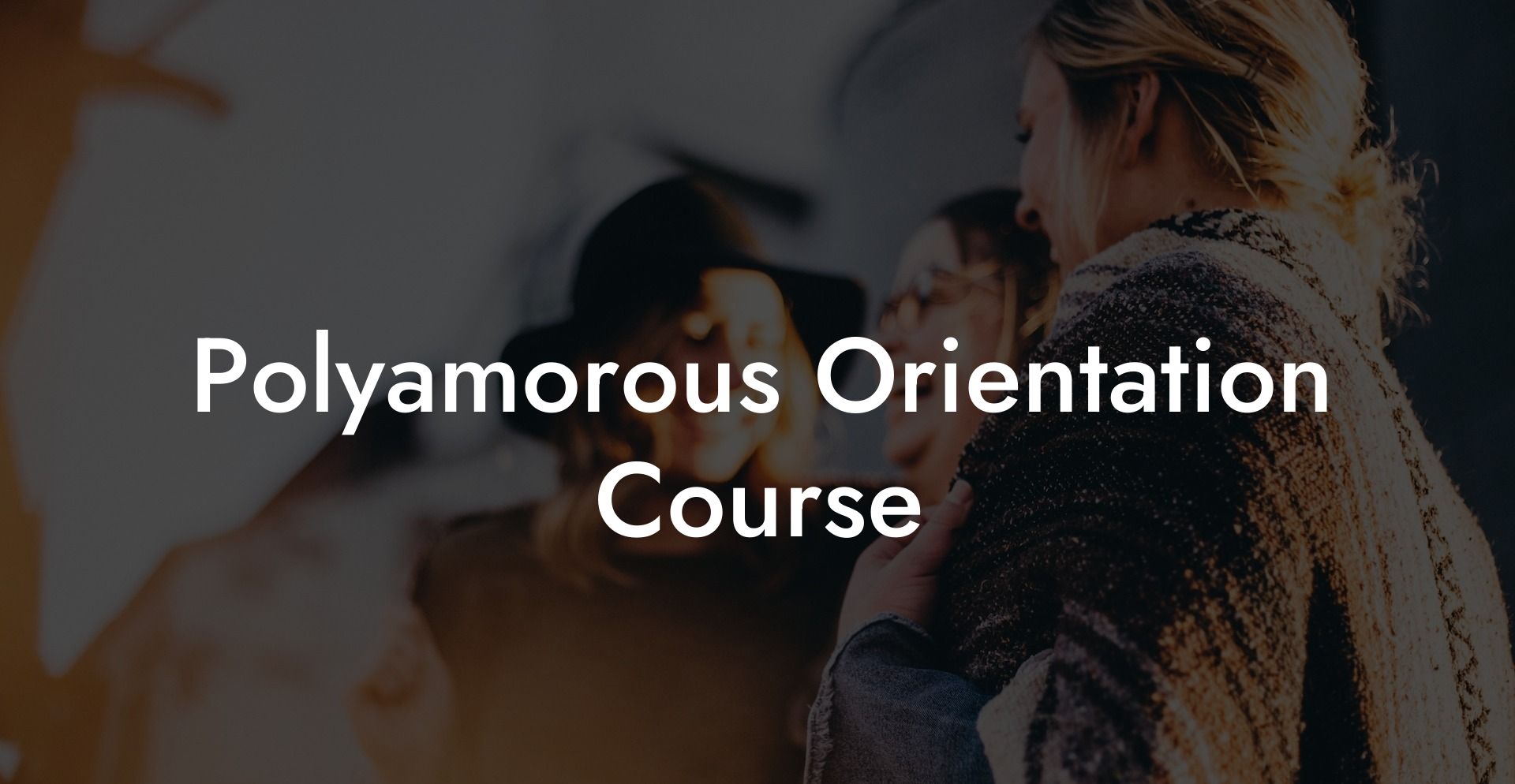Discover the exciting world of polyamorous relationships and delve into the essential information you need before venturing out into this non-monogamous lifestyle. In this Polyamorous Orientation Course, you'll learn the basics of polyamory, the different relationship structures, effective communication strategies, and practical advice to navigate your polyamorous journey.
Polyamorous Orientation Course Table of Contents
Types of Polyamorous Relationships
What is Polyamory?
Polyamory, a combination of the Greek word "poly," meaning many or several, and the Latin word "amor," meaning love, is a type of non-monogamous relationship in which individuals have multiple intimate, emotional, and sexual relationships with the knowledge and consent of everyone involved.
Types of Polyamorous Relationships
There are many polyamorous relationship structures, but here are some common types:
- Triads: A relationship with three people, all of whom are romantically and sexually involved with one another.
- Quads: A relationship with four people, often consisting of two couples who have joined together.
- Vee: A situation where one person is romantically involved with two other people who are not involved with each other.
- Polycule: A network of interconnected individuals who are all part of the same polyamorous system.
Effective Communication in Polyamory
Effective communication is the cornerstone of successful polyamorous relationships. Here are some strategies to improve communication in your polyamorous relationships:
- Be open and honest: Transparency is crucial in building trust. Share your feelings, needs, and boundaries openly with your partners.
- Practice active listening: Make an effort to understand your partner's perspective, reflect on their feelings, and validate their emotions.
- Use “I” statements: Focus on expressing your own feelings and needs, rather than blaming or accusing your partners.
- Establish regular check-ins: Set aside time for relationship maintenance discussions to address any issues and keep your connections strong.
Dealing with Jealousy
Jealousy is a natural emotion that can arise in polyamorous relationships. Here are some ways to manage and process jealousy:
- Identify your feelings: Recognize your jealousy and pinpoint its root cause, whether insecurity, fear, or something else.
- Practice self-compassion: Be kind to yourself and remember that it's okay to feel jealous. Embrace your feelings as an opportunity for growth.
- Communicate with your partners: Share your feelings of jealousy with your partners, and work together to find possible solutions or address any underlying concerns.
- Focus on personal growth: Use jealousy as a catalyst for self-improvement, by addressing insecurities or fostering new hobbies and friendships.
Polyamorous Orientation Course Example:
Imagine a triad consisting of Alice, Bob, and Carol. Alice and Bob started as a monogamous couple but decided to explore polyamory and met Carol. All three individuals communicated openly about their feelings and desires, and they agreed to form a triad together.
Over time, Bob becomes jealous when he notices the strong emotional bond developing between Alice and Carol. Instead of brushing off his feelings or blaming his partners, he identifies the root cause of his jealousy: fear of being left out. Bob communicates his feelings with Alice and Carol, and they come up with ideas for more inclusion in their relationship. With improved communication and understanding, the triad grows stronger and continues to navigate their polyamorous journey together.
Embracing polyamory can be a fulfilling and enriching experience for both you and your partners. By understanding the foundations of polyamorous relationships, practicing effective communication, and exploring various relationship structures, you'll be better equipped to navigate the world of polyamory. Remember to enjoy the journey and learn from every experience.
We hope this Polyamorous Orientation Course has enlightened and inspired you. If you found it helpful, please share it with friends and explore other guides on The Monogamy Experiment.













